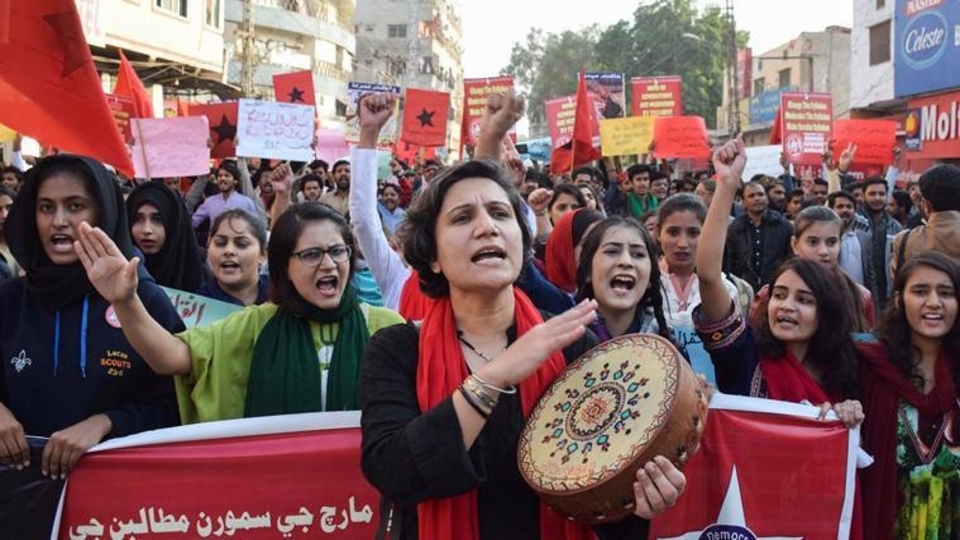Several organizers and participants of the historic Student Solidarity March in Pakistan, which mobilized students unions across the country, have been charged with sedition for allegedly “raising insulting remarks against the state institutes.” According to the Lahore police, charges have been leveled against 300 unidentified students. One of the participants associated with Pashtun Tahaffuz Movement, Alamgir Wazir, was also arrested on December 1. The Pashtun Tahaffuz Movement (Pashtun protection movement has been demanding rights for the community in the provinces of Khyber Pakhtunkhwa and Balochistan.)
Wazir, the acting chairperson of the Pakhtun Council, was staying in the hostel of the Punjab University when he was detained. Students associated with the Pakhtun Council have released a statement condemning the charges leveled against him. Demonstrations were also held outside the Punjab University vice-chancellor’s house, demanding his immediate release.
After being detained on Sunday, Wazir was presented in court at the Cantt Kachhery. The police requested permission to keep him in custody for a ten-day period, asserting his involvement in anti-state speech and for violating the sound systems act. The court, however, rejected this request and released him on judicial remand.
In the first information report compiled by the Civil Lines police on behalf of the state, the names of some of the other students charged with sedition have also been mentioned, including Mohammad Shabbir, Kamil Khan, Ammar Ali Jan and Farooq Tariq. Iqbal Lala, father of the Mashal Khan, a 23-year-old student who was lynched over allegation of blasphemy in April 2017, was also charged by the police.
The Student Solidarity March was successfully conducted across Pakistan on November 29, to demand the restoration of student unions in the country, along with the provision of better educational facilities. The government of prime minister Imran Khan responded by making statements to appease the agitating students. Former finance minister Asad Umar even hinted at plans to restore student unions. In fact, the ban on student unions was lifted by the state government of the Sindh province through an announcement on December 2.
On the other hand, the authoritarian response by the police and university administration has led to charges of doublespeak and angered the student community.
“From getting degrees cancelled, to getting abducted from campus, to getting booked under sedition charges, students and academics have faced all in just past one week for marching for Students Unions,” noted prominent human rights activist, Jibran Nasir.





